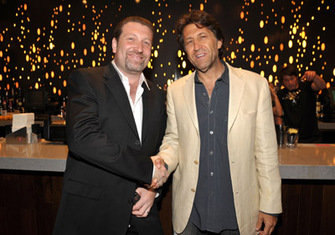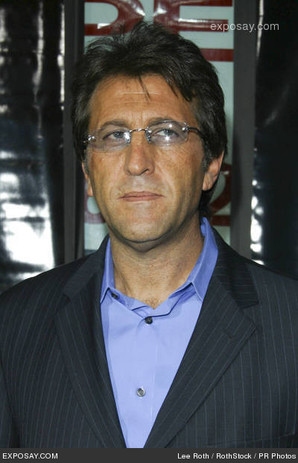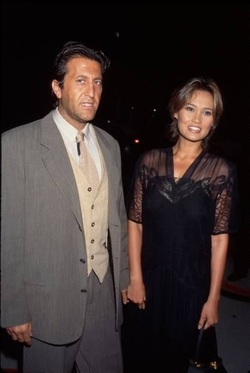
The person I’m going to tell you about today is perhaps going to seem like a weird choice for the series. He’s a producer of films, often the kinds of films that are deeply important to those who made them ("labour of love" is the term he mostly used). He’s also made such a slew of crap, you’d think he was on a one-man mission to kill movies. He doesn't necessarily seem like the kind of guy who does it for the love of movies, rather for the love of money. However, it’s not really for his skills as a creator of movies that I want to talk about. I mean, that as well, but mostly it’s because of his ingenuity in doing so.

Elie Samaha opened a dry cleaner.
There's a brilliant kind of simplicity to this plan to get into the movie business. He found himself a property close to the studios, started a dry cleaners and offered his services to the nearby costume departments and executive offices. He even made up laminated cards that would give preferred customers free dry cleaning for periods of time. Business took off like a shot and he was now in business with Hollywood, albeit in a small way. But Samaha is clearly an entrepreneur of great skill.
Taking the money he made from his dry cleaning business, Samaha then bought up some real estate and opened a restaurant and a club. He had the capital and the relationships with some of the players in Hollywood that made his new businesses a success. Samaha helped keep the suits clean, kept the people that wore them fed and gave them all a place to party. Pretty soon, everyone went to Samaha's place. And then came his way in...
Samaha's way to make movies was a simple two-pronged method. First, he'd befriend the big name actors who harboured a dream project, something personal they wanted to make, but couldn't get funded for one reason or another. In such cases, Samaha would offer the chance to make these projects happen, with the proviso that the big stars would work for scale (industry minimum wage) to keep budgets low. Second, he'd sell the distribution rights to foreign markets ahead of production, meeting most of the film's budget, which would then be completed through bank loans.

It's maybe somewhat difficult to regard Elie Samaha as a "hero" in some respects. By most accounts of those who have experienced his business acumen, he's a belligerent tyrant when it comes to negotiation, a silver-tongued devil who can work a room to get his way. However, it's in his rise from the role of bouncer at Studio 54 in the 1970s, through various businesses and ventures to a Hollywood producer of some notoriety and clout that puts him on a similar path of the producers of the Golden Era. They didn't go to business school or film school or really have any connection to either world. Sam Goldwyn was a glove salesman; Carl Laemmle was a bookkeeper; Louis B. Mayer was a junk man; and Elie Samaha was a bouncer and dry cleaner. And yet all of them found their way into show business because they recognised the potential and saw the opportunity. There's a directness to how they handle business that can be rare in the corporate parts of the Hollywood system. But more importantly, Samaha is a risk-taker.
In the current climate of seemingly endless remakes and sequels, the most common complaint levelled against Hollywood is that it can't take a risk anymore, it doesn't know how. The business side of Hollywood has become too wary of sinking money into fresh product that doesn't have an audience ready and waiting for it.
Samaha may not make things that are to everybody's taste. He may be a mostly unrelenting annoyance to many, and he may even have lost money for his foreign investors, but there is no denying that he has earned some respect (along with some fear and loathing) for what he has accomplished in Hollywood. By enforcing a hard line, Samaha has made projects for sometimes half of what studios would have budgeted, with major stars. He's one of those guys who doesn't seem to care what the project is. He just asks that the budget is under control and you have a name to put on the marquee.
A former dry cleaner that can stand against studio execs and come out a winner?
Surely that's just a little bit heroic.
Follow Paul on Twitter!

 RSS Feed
RSS Feed
